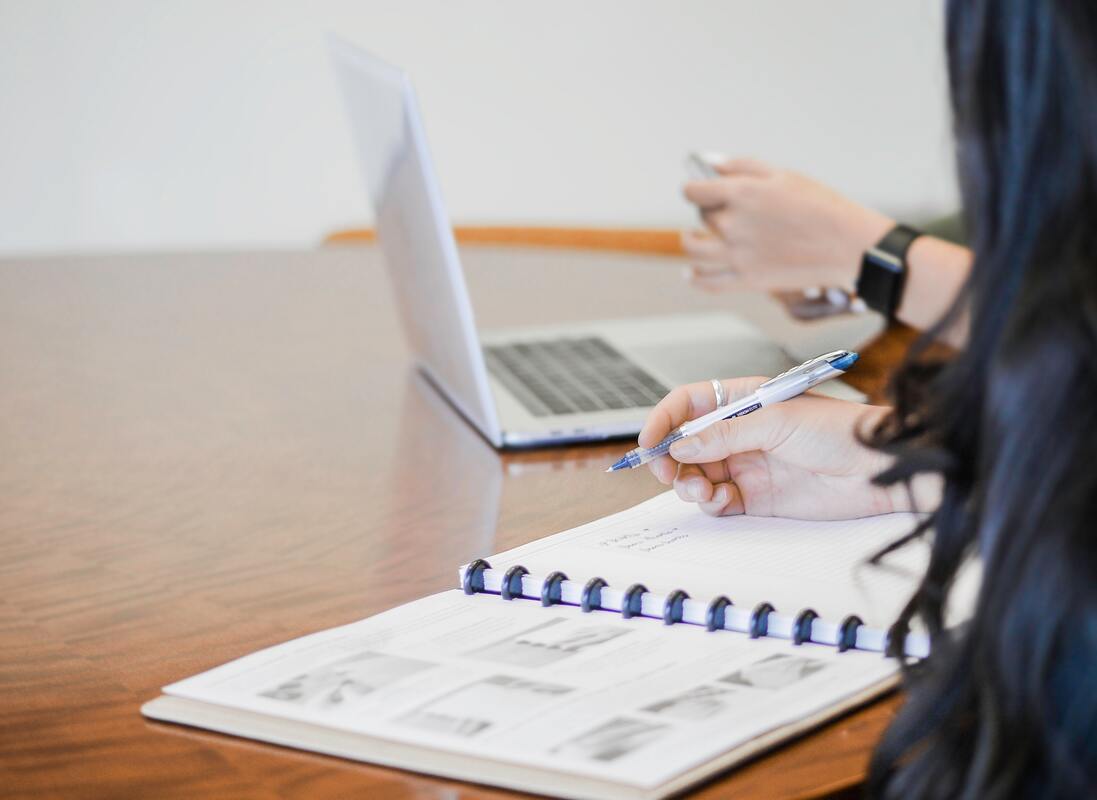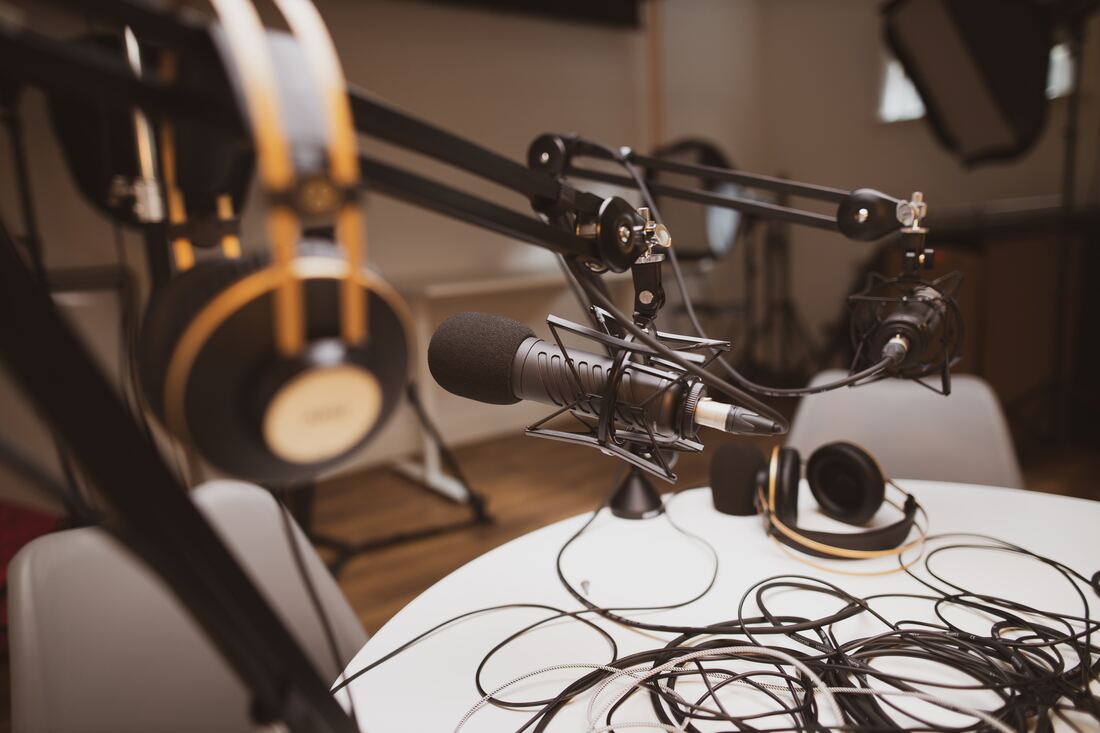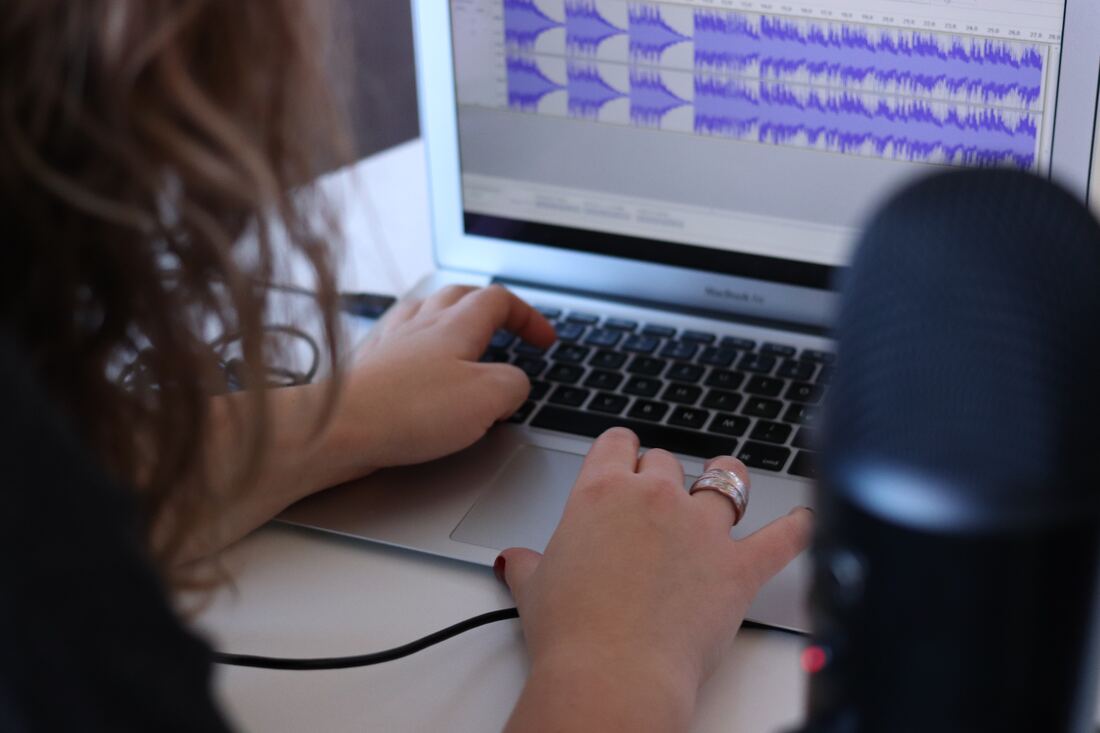|
Here, you can follow the behind-the-scenes development of CultureKlatsch, from equipment selection, to interview preparation, to content curation. We hope this blog will be a useful resource to those who are interested in creating their own podcasts, or in podcasts generally. Archives
March 2020
Categories |
Back to Blog
In previous blog posts, we’ve talked about the more technical aspects of podcasting, like choosing your equipment and preparing your recording space. Now it’s time to get into the more creative part of the process: structuring your podcast episode. Depending on your specific type of podcast, this could look differently -- it might be preparing questions for an interview, creating an outline for a discussion, or writing a fictional narrative. In this post, I’ll be sharing my process for structuring episodes of CultureKlatsch, from doing research to conducting interviews and finally creating an outline to bring everything together.
For CultureKlatsch, we’re constantly trying out new formats and experimenting with different ways to structure the show. This means that the process for every episode is different, depending on whether I’ll be conducting multiple interviews, getting together with a group of students to talk, or something else. Regardless of what the episode structure ends up being, however, my process always involves the following elements. Research For me, it always starts here. I might already know what the topic of the episode will be, like a movie or a TV show, but the research helps me determine what particular angle I want to take. I might start doing research on horror films and find that there’s an entire history of a sub-genre that I didn’t know about, or I might start watching episodes of a series and realize there’s one particular topic that none of the research I’ve encountered so far has covered. Research can take a lot of different forms depending on your topic. It might be binge-watching a show, reading the source material, reading academic scholarship, finding people in the community who can speak to the topic of the episode, or listening to other podcasts to get an idea of why people care about this topic or what aspects have yet to be discussed. I’m an avid notetaker, as it helps me process my thoughts and my understanding of the topic. At the end of my research, my notes might look like a garbled mess, but to me, that’s the ideal place to start. When I’ve pursued all the avenues for my research, I go back to those notes and start extracting the salient points that will become the focus of the podcast. Because CultureKlatsch always relies on input from scholars, students, journalists, and others in the literature and culture community, I often like to frame these points as questions that will help guide the next phase, interviews. Interviews Interviews are the life-blood of CultureKlatsch. As much as I enjoy speaking into the mic about all my thoughts on contemporary culture, what makes the podcast more dynamic are the conversations with experts and other people who are interested in or passionate about the topic of the episode. Because they’re so important to the podcast, I spend quite some time preparing for interviews. I usually like to start by taking my notes from the research phase and thinking about which questions are best suited for which interview subject. While I might ask some of the same questions to different people, I also like to prepare specific questions that will help me get the most of my conversation with an expert on a certain topic. For example, if I’m interviewing an expert on women’s studies, I would bring questions to help me understand how the text we’re discussing addresses gender. If I’m also speaking to an expert on politics about the same text, I would bring them questions about the political subtext or perhaps even the political impact of the text. This brings a variety of voices to the episode in a way that helps me and listeners understand all the different aspects of the text in question. I would hate to show up to an interview and have no idea what I’m going to be asked about, so I like to prepare all my interviewees by sending them my questions in advance, along with any articles or other materials I’m thinking of bringing up in our discussion. This helps them understand how I will be framing the discussion and start gathering their thoughts in advance. This is also a great time to ask them for any additional resources they think could be interesting to discuss during the interview. When the time comes for the interview itself, there’s no saying where the discussion will go, and that’s the fun part. Despite all the preparation, I don’t like to just go question by question and just wait for an answer. The discussion is more fun and animated when we can just share our thoughts on the topic. Of course, I always have the questions in front of me and make sure all the points are covered by the end of the interview. The best part of podcasting with guests is that we might all end up discovering something unexpected about the text. Outline You might expect to see the outline among the first steps, but I typically create mine after I’ve conducted all my interviews to help guide the editing process. For episodes where I’ve conducted multiple interviews, I typically listen back to my recorded interviews, annotating the topics we discussed with the corresponding timestamp. Then I create my outline, structuring the episode around those topics and slotting in the pieces of the interviews that correspond to each topic. Finally, I tie it all together with any narration needed to transition between topics or add context. Once I have a completed outline, it’s time to start editing! For episodes that feature just one discussion, like our recent episode on the best films of 2019, the structure of the discussion serves as the outline. In this case, the episode takes shape in the editing, and the narration is minimal to allow the discussion to flow naturally. Like with all creative endeavors, the process is really yours to determine. You can try out different methods of structuring your episode and find out what works best for your specific podcast. If you have any tips, please share them in the comments! And if you haven’t caught up on our newest episode yet, you can find it on Spotify, Soundcloud, and iTunes.
2 Comments
Read More
Back to Blog
You’ve bought all your shiny new equipment, you’ve prepared your topic for your first episode, and you’re ready to start podcasting. Now what? Recording day is what you’ve been waiting for, and it’s time to clear your throat, test the mic, and get started. If you’re brand new to podcasting, chances are you’re recording your first podcast episode at home rather than a fancy studio, but that doesn’t mean it can’t sound great. Here are some tips to get you ready for recording day.
Set up your recording space The first thing you need to figure out is where to record. If you’re recording at home, it’s best to opt for a smaller room with a lot of soft surfaces (like plush furniture) to absorb sound. A large, spare room will result in an echo-y sound, so a bedroom tends to work best (sit by the closet with the closet doors open so you can use all those sweaters as sound-proofing!). Make sure you have all your recording equipment handy -- you’re going to need your laptop, mic, headphones, and anything else you’ve purchased for podcasting. You want your voice to project naturally, so make sure you have a comfortable seat and a stable surface for your equipment. If your mic and headphones are separate (not a headset), then make sure you’re sitting close to the mic and you remain at relatively the same distance from it during recording so your voice’s volume remains consistent. Reduce background noise Next, you need to take care of any background noises that your mic might pick up. The better quality mic you have, the more background sounds it will capture. Make sure you close the windows and doors and turn off the air conditioner or anything else in your home that is making a noise. You might be so used to it that you don’t notice it, but the mic will. Of course, unless you have a dedicated studio, there will always be some noises that sneak in -- a neighbor’s dog barking or a truck driving by. Don’t sweat the small things, but make sure you take care of any sounds that are easy to turn off before you get started. Get your notes and resources together Depending on your type of podcast, you might have a script you’re reading from, an outline to guide your interview, or some notes to help you remember the most important topics you want to talk about. Make sure you’ve gathered everything you need before you get started so you don’t waste time clicking around trying to find a link or flipping through the pages of a book you’re referencing. Get every document and resource lined up so you can have it easily at hand once you start recording. Especially when you’re recording with a co-host or guest, you want to keep the conversion flowing and avoid awkward moments when you’re trying to find that one quote you can’t fully remember. (An outline will be a great asset, but that’s a topic for another blog post!) Hydrate This might seem like a no-brainer, but you really don’t want your throat to run dry in the middle of the most exciting part of your podcast episode! I’m partial to a cup of green tea with honey before I start recording, and I always keep a full water bottle on hand. You’d be surprised how quickly your mouth can get dry when you’re doing all the talking, and taking a sip of water is also a good opportunity to catch your breath for a moment. Your voice is your most important asset when you’re podcasting, and you don’t want it to get scratchy mid-episode. Have fun, and don’t worry about mistakes! Ideally, you’re making a podcast because you’re really excited about your topic, so have fun with it! Your listeners want to hear your personality come through, so feel free to share some laughs and have a good time while you’re recording. Don’t worry about sounding perfect every time -- unless you’re podcasting live, you can easily start over if you’re stumbling on your words or lost your train of thought mid-sentence (we’ve all been there). But it can sometimes be fun and relatable to hear your favorite podcasters make a joke at their own expense or own up to a mistake. This might be the most over-used cliche, but there’s a reason it has endured -- just be yourself! As you record more episodes, you’ll start to figure out what works for you -- which beverage you like to enjoy, how you prefer to have your notes organized, which cozy socks keep you warm while you’re recording with the heat turned off… Get started with these tips, but feel free to experiment and create your own perfect recording day. I’ve just wrapped up my own recording day for episode 2 of CultureKlatsch! You can check out the new episode, Jordan Peele & Millennial Horror, on SoundCloud, Spotify, and iTunes. I had some awesome conversations about what makes Peele such an interesting filmmaker and the recent trends in the horror genre, and I got to attend a film theory class and hear the students discuss the film Us. Check it out, and make sure to leave us a review on iTunes!
Back to Blog
When I recorded my first podcast in grad school, I was figuring it out as I went, and I’m still learning as I produce CultureKlatsch and discover what works for me. I took to the Internet (particularly this great resource from Podcast Motor) to find tips on equipment, recording software, and editing software, hoping I could get everything done on as low a budget as possible (student life, am I right?). If you’re just getting started and aren’t ready to commit to spending a lot of money on podcasting just yet, here’s the setup I went with for my very first recording, as well as the upgrades I’ve made now that I’m producing CultureKlatsch.
Microphones Logitech Clearchat Headset mic: I went with this mic when I was getting started because it records with good quality for an affordable price. One of the good things about the headset is that the mic is always the same distance from your mouth, so your volume is consistent throughout the recording. It’s also handy to have your headphones and mic all in one, especially if you’re looking for a simple setup. One of the downsides is that, due to the proximity of the mic to your mouth, it captures all those popping sounds when you enunciate your Ts and Ps a bit too loudly. This can be avoided by minding your enunciation while recording, and you can clean it up a bit when you’re editing. Blue Yeti Condenser mic: I have since upgraded to the Blue Yeti mic because it has great quality and works for a variety of different settings. When you’re recording on your own, you can use the cardiod setting, which only records sound coming in from the front. If you’re recording a one-on-one interview or are in the room with multiple people, the mic has different settings to capture the sound you need. Because I do a lot of different kinds of interviews for CultureKlatsch, from one-on-one Skype calls to classroom discussions, this versatility is crucial. This is a powerful mic, which means it will also capture any background noise, so it’s best in a controlled recording environment (somewhere where you can turn off the air conditioner, close the windows, and make the room as soundproof as possible). Audio-Technica mic: The Blue Yeti is quite heavy, so it doesn’t work for situations where you want to pass around a mic (like if you’re recording a panel discussion). This Audio-Technica mic comes in handy when you need a lighter, more mobile option. Recording Software Call Recorder for Skype: This one is a must if you plan to have a lot of interviews for your podcast. It’s not always possible to talk in person, and Skype is the easiest way to conduct remote interviews and record them with good sound quality. Call Recorder for Skype from Ecamm requires a one-time payment, and it’s definitely worth it. It integrates with Skype so you can easily record your calls, and once you’re done, you can export the tracks separately (your side of the call and your guest's side), which makes your life easier when it comes to editing. Call Recorder for Skype only works for Mac, but you can try Pamela for PC. Editing Software Audacity: Let’s be real; the main reason I picked Audacity when I was getting started was that it’s free. But now that I’ve gotten used to editing with it, I really like it. Some people don’t enjoy the interface of Audacity quite as much, but it gets the job done. I’m totally self-taught when it comes to recording and editing audio, and I still have plenty to learn, but there are tons of videos and tutorials out there that show you how to make the most of Audacity. I also record directly to Audacity when I’m recording in person. The great thing about getting started in podcasting today is there are plenty of free and affordable options out there. You can always start with just the basics and then upgrade to different equipment and software as you learn and grow your podcast. If you’re already podcasting, let us know what type of equipment and software you’re using!
Back to Blog
Finding Your Podcast's Niche11/1/2019 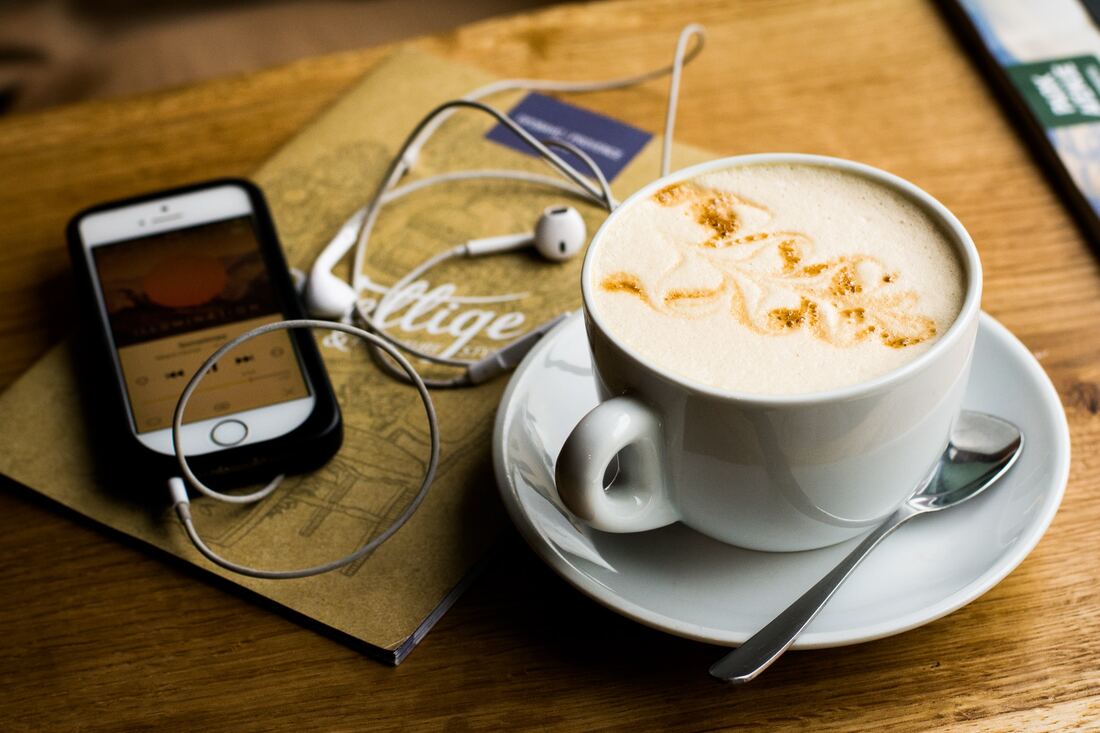 Photo by Juja Han on Unsplash Photo by Juja Han on Unsplash Welcome to the blog! I'll be sharing my thoughts and experiences as a podcast producer and host as well as behind-the-scenes insight into the making of CultureKlatsch. I thought I'd start with one of the most fundamental questions when starting a podcast: what will be your focus or niche? With countless podcasts out there covering every topic imaginable, from parenting podcasts to a podcast dedicated to pinball machine repair, it can be a little overwhelming and hard to see where your podcast will fit in. But whatever topic you're interested in discussing, there's someone out there ready to listen. The first step in your podcasting journey is figuring out what your focus will be. You may have a lot of different interests, but what sets a podcast apart is its singular focus or angle. My Favorite Murder is popular because they have a unique blend of true crime and comedy. Joe Rogen is known for his personal interviewing style, making his podcast one of the top in the country. What's the topic you're passionate about that will make your podcast stand out? For me, there was only one thing my podcast could be about: contemporary media. Ever since I was five and my parents got cable television, I've loved TV and movies. When Netflix began instant streaming, it was like a dream I never knew I had coming true -- I could watch all day and never run out of options to choose from. And I'm not just watching, but also deconstructing and analyzing and trying to figure out what the filmmakers or showrunners are trying to do. Naturally, when choosing texts to analyze and theorize about in grad school, I gravitated to what I knew -- unmistakably millennial TV shows, independent horror films… Those things that might not be considered particularly literary, I wanted to write about. My work in grad school taught me how to read texts more deeply and how to bring my favorite shows and movies into academic discussions. When it came time to start a podcast, I had years of binge-watching experience to draw from, and I had the tools of literary analysis to help me navigate the tricky labyrinth of popular culture. Who knew all those hours spent in front of the television were preparing me for a future in podcasting? There are a lot of podcasts out there that review films, television shows, and books, and there are a few academic podcasts, but there was a gap in between for these in-depth conversations about media. So that's my niche. Podcasting about contemporary media feels natural to me because it's a topic I'm genuinely passionate about and can bring my knowledge and experiences to. I'm always excited about each new episode because I know it's going to be about something I love. Podcasting is time-consuming, and if you're going to spend a lot of time on a project, it should be something you would want to listen to. Especially as a new podcaster, it's hard to build an audience on personality alone. What will draw your listeners in and keep them coming back is a common interest in whatever your niche is. Pick a topic that you’re going to want to talk about again and again and that is focused enough to find a dedicated audience. And don’t worry about getting too specific -- remember those guys who spent a whole year talking about the movie Grown Ups 2? If you have a podcast idea or are already podcasting, tell us about your niche in the comments! If you haven't checked out CultureKlatsh yet, head over to Spotify or iTunes to listen. |
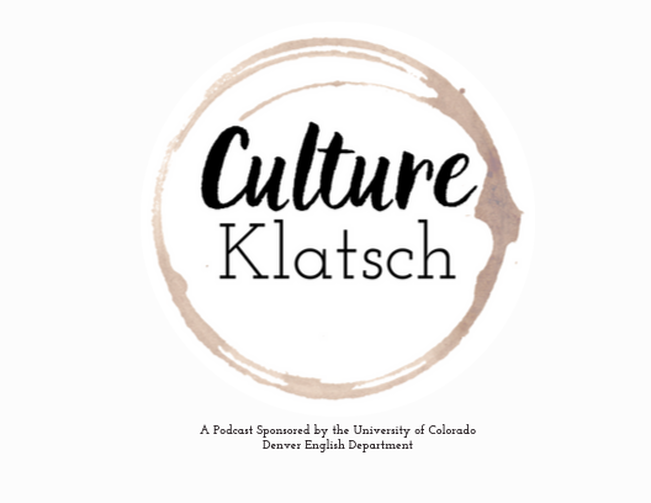
 RSS Feed
RSS Feed
